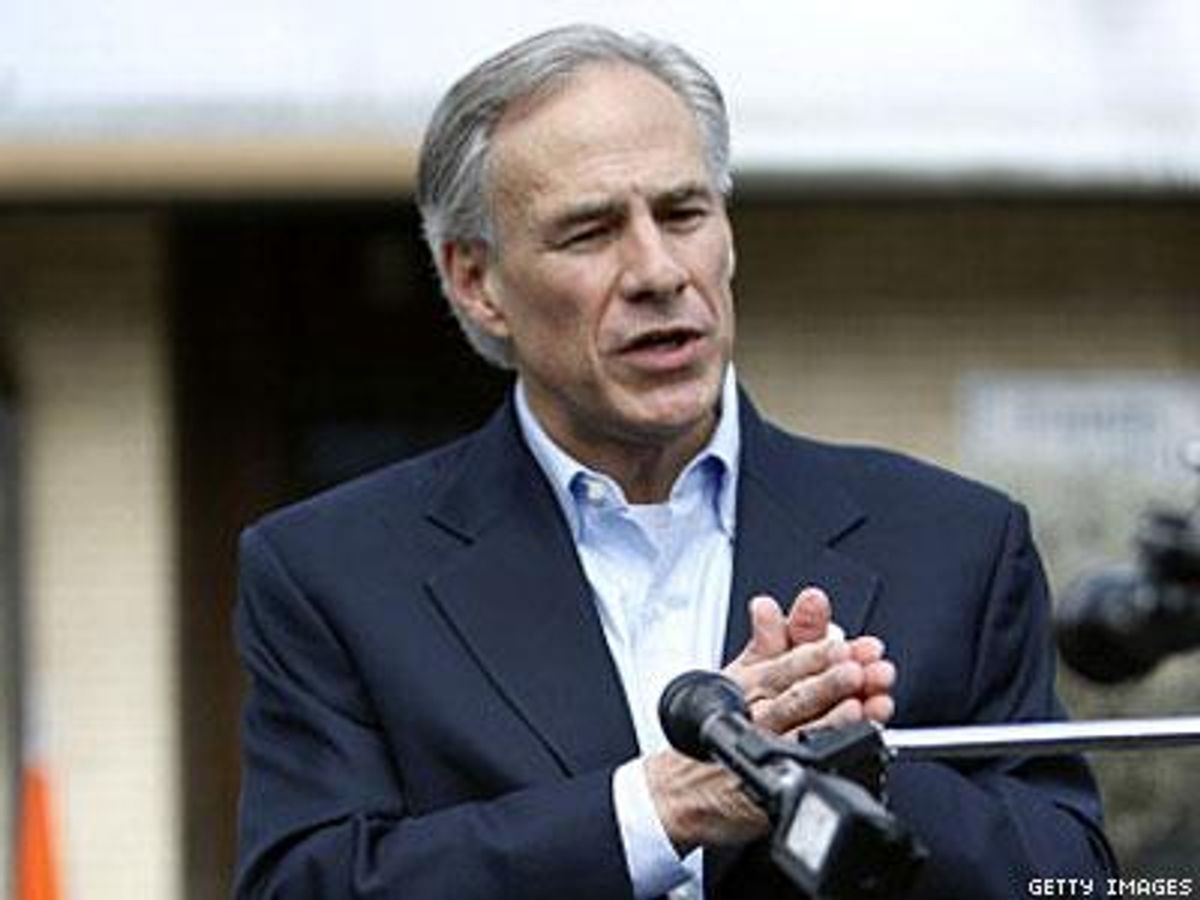Despite the fact that the same argument has already been rejected by two federal appeals courts, Texas Attorney General Greg Abbott is the latest elected official to attempt to defend his state's marriage inequality by claiming that prohibiting same-sex couples from marrying somehow protects children.
In a brief filed Monday with the Fifth Circuit Court of Appeals, Abbott argued that encouraging marriage between a man and a woman -- regardless of that couple's willingness or ability to have children -- will promote more couples who can procreate to marry, according to the Austin American-Statesman.
Arguing as the state's top legal official, Abbott claimed that the children produced by these hypothetical marriages would also fare better than those raised by same-sex parents, because the children with heterosexual parents would presumably have a stable home featuring a mother and a father, despite substantial scientific evidence that children raised .
"Because same-sex relationships do not naturally produce children, recognizing same-sex marriage does not further these goals to the same extent that recognizing opposite-sex marriage does," Abbott's brief said, according to the Statesman.
The claim that extending marriage rights to same-sex couples would do some sort of harm to children, or discourage other opposite-sex couples from marrying, has been flatly rejected in three recent cases decided by federal appeals courts. State officials in Utah and Oklahoma advanced that argument in defending their states' marriage equality bans before the 10th Circuit Court of Appeals in April -- but in both cases, a 2-1 majority of the court ruled in favor of the same-sex couples seeking the right to marry. On Monday, the Fourth Circuit Court of Appeals upheld a district court's decision striking down Virginia's constituional ban on same-sex marriage, after hearing similar arguments from proponents of the antigay law who claimed that protecting so-called traditional marriage was the only way to ensure "responsible procreation."
Abbot's brief was filed in response to a February decision from U.S. District Judge Orlando Garcia, which struck down Texas's statuatory and constitutional prohibitions on marriage equality as a violation of the U.S. Constitution's guarantees of equal protection and due process. Garcia's decision determined that existing Texas law demeans same-sex couples and places them in a second-tier status, according to the Statesman's review.
But despite Garcia's ruling -- and 27 other consecutive pro-equality rulings from state and federal courts since the U.S. Supreme Court's landmark ruling in U.S. v. Windsor last summer striking down a key section of the Defense of Marriage Act -- Abbott argues that right of same-sex couples to marry has nothing to do with constitutionality. Instead, the Republican attorney general claims, any determination about the nature of rights should be deeply rooted in the nation's history.
"Finally, Texas's marriage laws do not conflict with any decision of the Supreme Court," reads page 16 of the brief. "The holdings of Loving, Lawrence, and Windsor stop well short of requiring same-sex marriages in all 50 states. The plaintiffs would like this Court to extend the holdings of those cases. But a court cannot extend those cases absent of showing that Texas's marriage laws conflict with the Constitution, and the plaintiffs have not presented an argument based on the Constitution."
The brief goes on to denote three points which the Attorney General's office believes justify the state's discriminatory marriage laws.
"[Plaintiffs] cannot escape the fact that Texas's marriage laws: (1) do not conflict with any decision of the Supreme Court; (2) do not conflict with any language in the Constitution; and (3) do not conflict with any longstanding practice or tradition," reads the brief.
The same-sex couples who filed suit have until September 2 to file a response with the court to the Attorney General's brief, after which point Abbott will have another two weeks to file a response to the plaintiff's latest brief. Sometime after those briefs are filed, the Appeals Court is expected to schedule oral arguments in the Texas case.


















































































